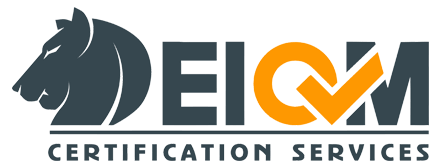Importance of Auditing Management Systems
Auditing management systems is crucial for organizations to ensure compliance with various standards and regulations. By conducting audits, organizations can identify areas for improvement, mitigate risks, and enhance overall performance.
Ensuring Compliance
One of the primary reasons for auditing management systems is to ensure compliance with relevant standards, such as ISO 9001 (Quality Management Systems) and ISO 14001 (Environmental Management Systems). Audits help organizations identify non-conformities and take corrective actions to address them.
Identifying Areas for Improvement
Audits also provide valuable insights into the effectiveness of an organization’s management systems. By identifying strengths and weaknesses, organizations can implement continuous improvement initiatives to enhance efficiency and effectiveness.
Key Principles of ISO 19011
ISO 19011 is based on several key principles that guide the auditing process:
Integrity
Auditors should perform their duties with honesty, fairness, and impartiality, ensuring the integrity of the audit process.
Fair Presentation
Auditors should present audit findings accurately and objectively, providing a fair representation of the organization’s management systems.
Due Professional Care
Auditors should exercise due professional care throughout the audit process, ensuring that all relevant aspects are considered and evaluated thoroughly.
Scope of ISO 19011
ISO 19011 applies to all organizations, regardless of their size, industry, or sector. It can be used to audit various management systems, including quality, environmental, occupational health and safety, and information security management systems.
Principles of Auditing
Auditing under ISO 19011 is guided by several principles that ensure the effectiveness and reliability of the audit process:
Ethical Conduct
Auditors should conduct themselves ethically, maintaining confidentiality, independence, and objectivity throughout the audit process.
Independence
Auditors should be independent of the activities being audited and any conflicts of interest, ensuring impartiality and integrity.
Professional Judgment
Auditors should exercise professional judgment when planning, conducting, and reporting audits, taking into account relevant criteria and considerations.
Types of Audits Under ISO 19011
ISO 19011 recognizes three main types of audits:
First-Party Audits
First-party audits are conducted by an organization to assess its own management systems and performance.
Second-Party Audits
Second-party audits are conducted by external parties, such as customers or regulators, to evaluate the compliance and performance of suppliers or contractors.
Third-Party Audits
Third-party audits are conducted by independent certification bodies to assess an organization’s compliance with relevant standards and regulations.
Steps Involved in Auditing Management Systems
Auditing management systems typically involves four main steps:
Planning
The planning phase involves defining the scope and objectives of the audit, selecting auditors, and developing an audit plan.
Conducting the Audit
During the audit, auditors gather evidence, conduct interviews, and review documents to assess the effectiveness of the organization’s management systems.
Reporting
After the audit, auditors prepare a report documenting their findings, conclusions, and recommendations for improvement.
Follow-Up
The follow-up phase involves monitoring the implementation of corrective actions and verifying their effectiveness to address identified non-conformities.
Benefits of ISO 19011 Compliance
Compliance with ISO 19011 offers several benefits for organizations, including:
Enhanced Credibility
ISO 19011 certification enhances an organization’s credibility and reputation, demonstrating its commitment to quality, compliance, and continuous improvement.
Improved Efficiency
By identifying and addressing areas for improvement, ISO 19011 helps organizations enhance efficiency, reduce waste, and optimize their processes.
Better Risk Management
ISO 19011 enables organizations to identify and mitigate risks effectively, ensuring the robustness and resilience of their management systems.
Challenges in Implementing
While ISO 19011 offers numerous benefits, organizations may face challenges in its implementation, including:
Resource Allocation
Implementing ISO 19011 requires significant resources, including time, money, and expertise, which may pose challenges for some organizations, particularly small and medium-sized enterprises (SMEs).
Training Requirements
Auditors need to undergo training and certification to ensure they have the necessary skills and knowledge to conduct audits effectively, which can be time-consuming and costly.
Conclusion
ISO 19011 plays a crucial role in auditing management systems, providing organizations with a framework for conducting audits effectively and efficiently. By adhering to its principles and guidelines, organizations can ensure compliance, identify areas for improvement, and enhance overall performance.

